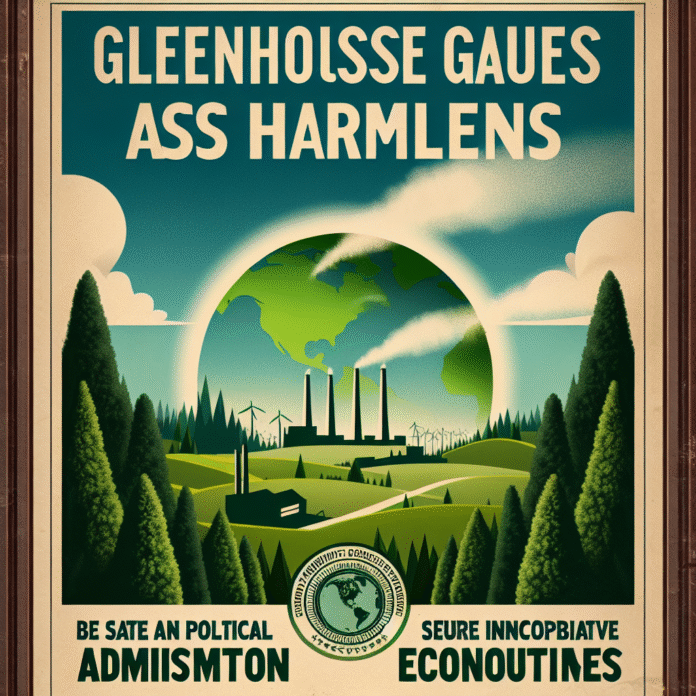Trump Administration to Claim Greenhouse Gases Are Not Harmful
Trump Administration Expected to Downplay Greenhouse Gas Dangers
The Trump administration is anticipated to take a controversial stance regarding the impact of greenhouse gases on the environment. Reports suggest that officials may assert that these gases are not harmful, a position that has raised concerns among environmentalists and scientists alike.
Under the administration’s approach, there is expected to be a shift in the narrative surrounding climate change and its associated risks. This stance could potentially reshape regulatory frameworks that govern emissions and air quality standards. Critics argue that dismissing the dangers of greenhouse gases undermines decades of scientific research confirming their role in global warming and climate disruption.
Context and Implications
The assertion that greenhouse gases pose no significant threat could have far-reaching implications for climate policy in the United States. It may lead to reduced funding for renewable energy initiatives and a rollback of regulations aimed at curbing emissions from industries such as fossil fuels, transportation, and agriculture. Such moves could exacerbate environmental challenges, including air pollution and extreme weather events linked to climate change.
Furthermore, this position could influence international climate agreements, as the U.S. plays a critical role in global efforts to mitigate climate change. A lack of commitment to reducing greenhouse gas emissions might weaken collaborative initiatives and affect global climate negotiations.
Scientific Consensus on Greenhouse Gases
The prevailing scientific consensus is that greenhouse gases, including carbon dioxide, methane, and nitrous oxide, significantly contribute to the greenhouse effect, leading to global temperature increases. The Intergovernmental Panel on Climate Change (IPCC) has provided extensive evidence linking human activities, particularly fossil fuel combustion, to rising atmospheric concentrations of these gases.
Environmental advocates emphasize the importance of adhering to scientific findings to address the climate crisis effectively. They argue that recognizing the harmful effects of greenhouse gases is essential for developing sustainable solutions and fostering a healthier planet for future generations.
Public Response and Future Outlook
As the administration’s position becomes clearer, public reaction is likely to be mixed. Environmental organizations and concerned citizens are expected to mobilize efforts to advocate for science-based policies that prioritize climate action. Grassroots movements and protests could emerge, aimed at holding the government accountable for its stance on climate change.
In summary, the anticipated announcement from the Trump administration regarding greenhouse gases raises significant concerns about environmental policy, regulatory measures, and the United States’ role in global climate initiatives. The ongoing debate surrounding the validity of these claims will likely shape the trajectory of climate action in the coming years.


